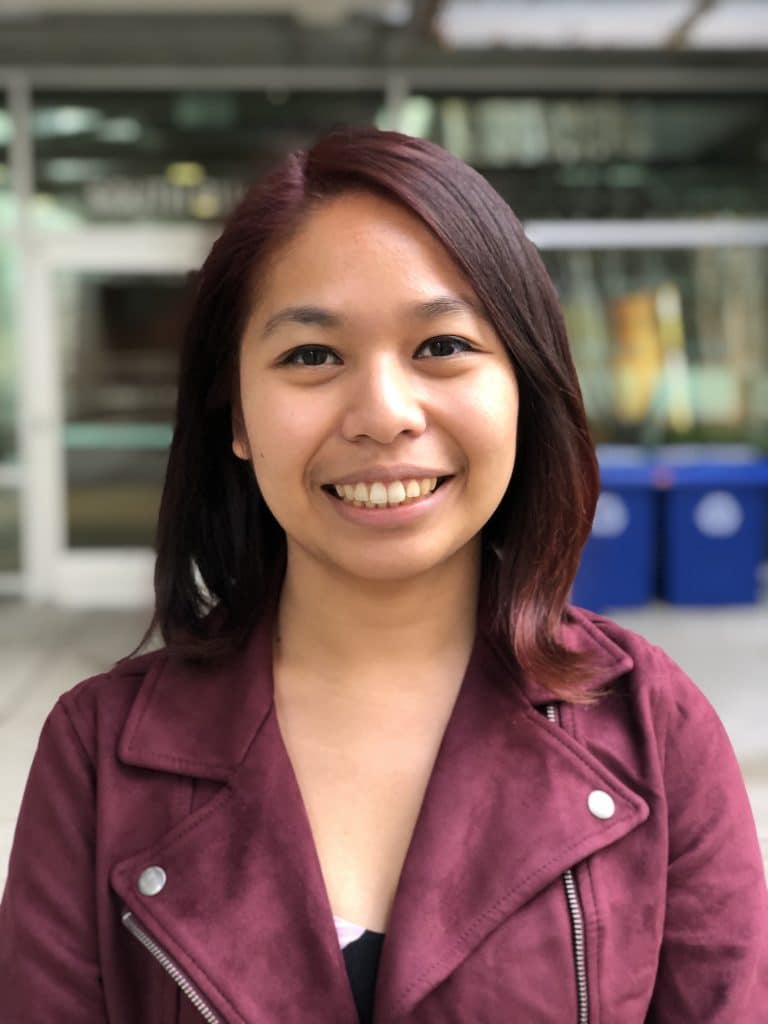
By Dawn Angelicca Barcelona
Winning an international fellowship can bring both excitement and nerves. You probably have places you’d like to visit, foods you’d like to try, and once-in-a-lifetime experiences you’d like to have during your time abroad. In addition to planning what to pack and establishing your fellowship goals, it’s also important to develop your mental health toolkit before and during your fellowship. Learning mental health tips for your fellowship abroad will allow you to process some of the difficult emotions you may experience while being far away from friends and family.
All of us, regardless of whether or not we are diagnosed with a mental health condition, may experience some form of anxiety, loneliness, or changes in mood or sleep while we are living abroad. One thing that can be helpful is preparing a mental health and self-care action plan so you have resources and coping strategies within reach.
In 2014, I had the opportunity to move to South Korea for a Fulbright English Teaching Assistantship. As someone who lives with multiple mental health conditions, I was worried about where to find support if I had a relapse with depression, anxiety, or an eating disorder. While I knew the opportunity to go to South Korea on a Fulbright was a huge honor and an important first step in my career journey, I needed to be proactive about my mental health in order to make the most out of my time abroad.
Soon after returning home from my Fulbright abroad, I became a volunteer for the National Alliance on Mental Illness in San Francisco. On behalf of NAMI, I give presentations to students and community organizations on the prevalence and symptoms of common mental health conditions while sharing my lived experiences. I also speak to managers and employees at companies of all sizes and industries to break the stigma surrounding mental health at work.
Here are some of the mental health tips for fellowships abroad I’ve learned while working with NAMI, in addition to some of the coping strategies I utilized on my Fulbright fellowship.
1. Find What’s Familiar
Being in a new environment can be both thrilling and disorienting, and you may feel overwhelmed as you adjust to your new life abroad. Being able to bring the routines and hobbies you had before your big move can provide a sense of stability. If you’re used to a routine like winding down in the evening with a book or a long walk, continuing to do these things abroad will be grounding. It’s even better if you’re able to share some of these activities with new friends who have the same interest.
During my Fulbright, I used Meetup to find a writing accountability group for November’s National Novel Writing Month. The Meetup group leader organized in-person meetings and set up a Facebook group online where I and other writers discussed our word-count goals, wrote together for a set amount of time, and celebrated each step we took to finishing a 50,000-word novel. This was a great experience for me to share my hobby with others and start to develop a sense of community.
2. Research Access to Mental Health Resources
If you plan to have health insurance abroad, contact their customer service team to see if they cover any mental health counseling or reimburse you for services. During my Fulbright grant, I had health insurance through Seven Corners, which gave me access to medical coverage that included a number of therapy appointments via video call.
If a therapist is hard to find — which it can be in many places — take advantage of online support groups that meet weekly or monthly where you can talk about what’s on your mind and receive advice and feedback from peers. While a support group does not replace professional help, it can help to connect with folks who can provide feedback and empathy. Support Group Central and NAMI are two great places to find a support group.
You can also take advantage of apps such as Insight Timer, which has thousands of free meditations, and MindDoc, which provides self-paced modules for learning coping strategies, plus daily notifications to check in on your mood and feelings. There are also inspirational podcasts you can listen to that feature stories of those struggling with and overcoming anxiety, depression, grief, and isolation; for example, 10% Happier, Mental Illness Happy Hour, and The Positive Psychology Podcast. Learning from the personal narratives of others who have overcome difficult situations can help you feel less alone and give you hope if you’re in a tough place emotionally.
3. Build Community Abroad
After almost two years of social disconnection and isolation due to the global pandemic, having a community and support system is more important than ever for maintaining positive mental health.
My Fulbright in South Korea was my first time living alone, and I initially found it difficult to connect with my coworkers due to our language barrier. To overcome my loneliness, I started taking Korean lessons so I could have longer conversations with my coworkers at lunch or in the teacher’s office and talk more with my students in between classes.
I also reached out to the other Fulbrighters in my program and made plans to meet up in Seoul for the weekend to try new restaurants or visit a museum. Luckily, public transportation was affordable and reliable, so I was able to travel to different cities to visit my Fulbright friends in other provinces for special festivals or cultural events.
You can also consider reaching out to alumni of your fellowship program to ask for tips to prepare for your fellowship and see if they have any friends in the area who they could introduce you to. It always helps to have mutual connections, and this can be a springboard to fostering your own community abroad!
4. Make a Shortlist of Soothing Activities
It was really helpful for me to have a quick list of activities I could turn to when I felt overwhelmed with stress, culture shock, loneliness, and homesickness. The activities you pick on your list can range from something simple that you can do anywhere, such as closing your eyes and breathing deeply for one minute, or something more involved, such as going on a walk or writing a letter to a friend back home.
Write down your favorite activities on two index cards, place one in your wallet, and post one somewhere in your home where it could help you when times are tough, like above your bed or on your mirror. That way, when you feel overwhelmed, you’ll know exactly where you can find your list and practice some grounding self-care activities.
5. Remember that Your Feelings Are Valid
One thing that was difficult to hold true for myself was that I was both extremely privileged and worked very hard to win my fellowship and it was not going to be the perfect experience. There were many ups and downs — unexpected situations like breaking my foot, for example — and I would especially start to feel down when I remembered that I was missing out on milestones back home like my weddings and events with friends.
Often folks back home would say that I was really lucky to have the chance to live abroad, and I took that to mean, “How could you possibly be having a bad time?” If you are met with a similar reaction when speaking to someone from back home, know that the unpleasant feelings and distressing situations you experience abroad are completely valid.
Developing some mantras helped me through some of these difficult times. Here are a few to get you started:
- “I am resilient.”
- “I will not be defined by this difficult time.”
- “I am a capable person.”
- “My wants and needs are important.”
- “My vulnerability is a path to knowledge and strength.”
Repeating these phrases to myself during times of distress, hurt, or loneliness helped me get through intense emotional feelings. Make up your own mantras and share them with others!
6. Returning Home
Returning home after your fellowship will also bring a wide range of feelings. It can be really tough to come back home after an incredible, life-changing journey abroad and adjust to a sense of normalcy. Be gentle with yourself as you catch up with friends and family, and let yourself adjust at your own pace.
One aspect I found difficult about my return was that it was hard to sum up my two-year experience abroad every time someone asked me how my experience was. The more I talked about South Korea, the more I missed it. One way I continue to integrate my experience in South Korea to my life now is by cooking Korean food and sharing it with others. Cooking is an activity that is positive for my mental health, and I always feel happy when I introduce someone to Korean food and they enjoy it.
Another aspect that I struggled with was the realization that a career outside of teaching might be a better fit for me. Teaching gave me a lot of joy, but it was also hard on my mental health when I felt one of my lessons had failed during class. My identity was fairly enmeshed with this career goal for many years, which made it difficult to make the pivot into something new. When I started interviewing for recruiting jobs in the tech industry, it surprised me that my interviewers were interested in learning about my Fulbright experience and saw it as an asset to their team.
As you prepare for your own return, I encourage you to give yourself time to take it slow. Whether you were away for 3 months or 3 years, coming home will be bittersweet. Things might not look the same when you walk through the neighborhood you lived in before your time abroad. It might feel awkward to fit back into your friend group after you’ve been away for a significant amount of time. Remember that you’re also coming back with new knowledge and experiences. Things will start to feel more comfortable as you settle into the rhythms of your old life while incorporating your new perspective from living abroad.
Dawn Angelicca Barcelona (she/her) is a Filipina-American tech recruiter in
Intersted in pursuing a fellowship abroad? Here are 5 Reasons Why You Should Consider a Fulbright Award.
© ProFellow 2022, all rights reserved